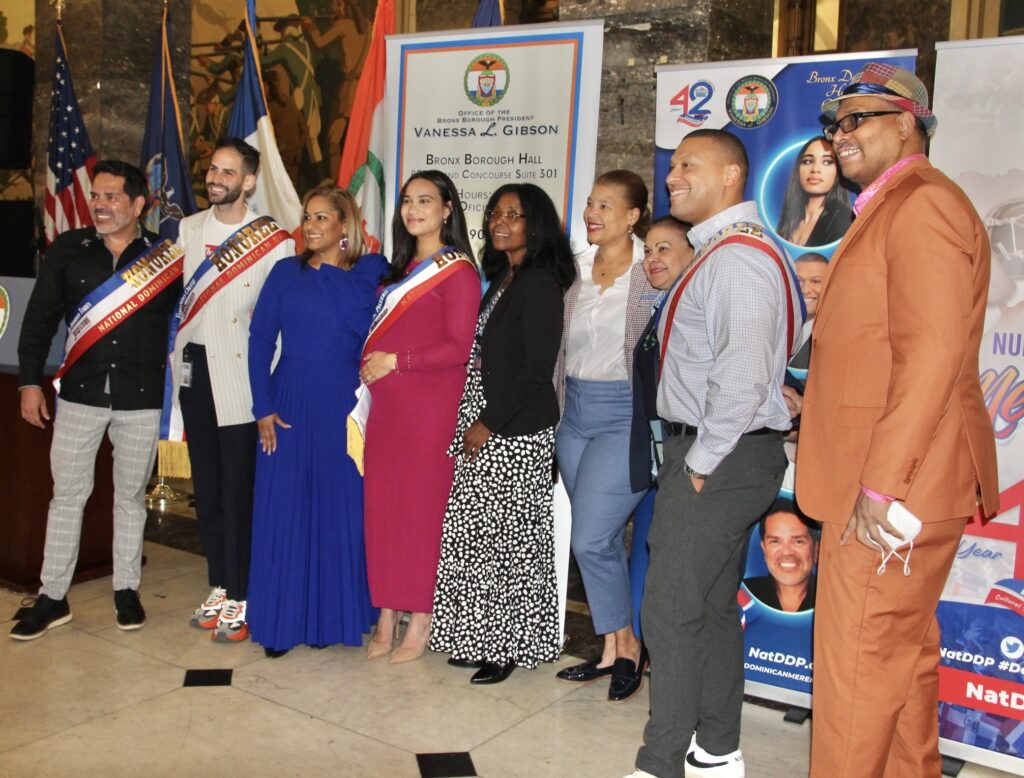
Photo by Síle Moloney
Following both French and Spanish rule from as early as the 16th century, the island nation of the Dominican Republic (DR) declared itself an independent nation from neighboring Haiti [on Feb. 27] in 1844, according to the U.S. Office of the Historian. In 1861, the DR reverted to Spanish rule, until once again winning its independence in 1865.
This year marks the 180th anniversary of the island nation’s first state of independence, celebrated each year on the island on Feb. 27, and in New York from mid-January to Feb. 27. In addition to her usual annual celebration to mark Dominican Heritage Month, which this year was held on Feb. 22, The Office of the Bronx Borough President hosted another celebration at Bronx Borough Hall on Thursday, May 2, for the Dominican community.
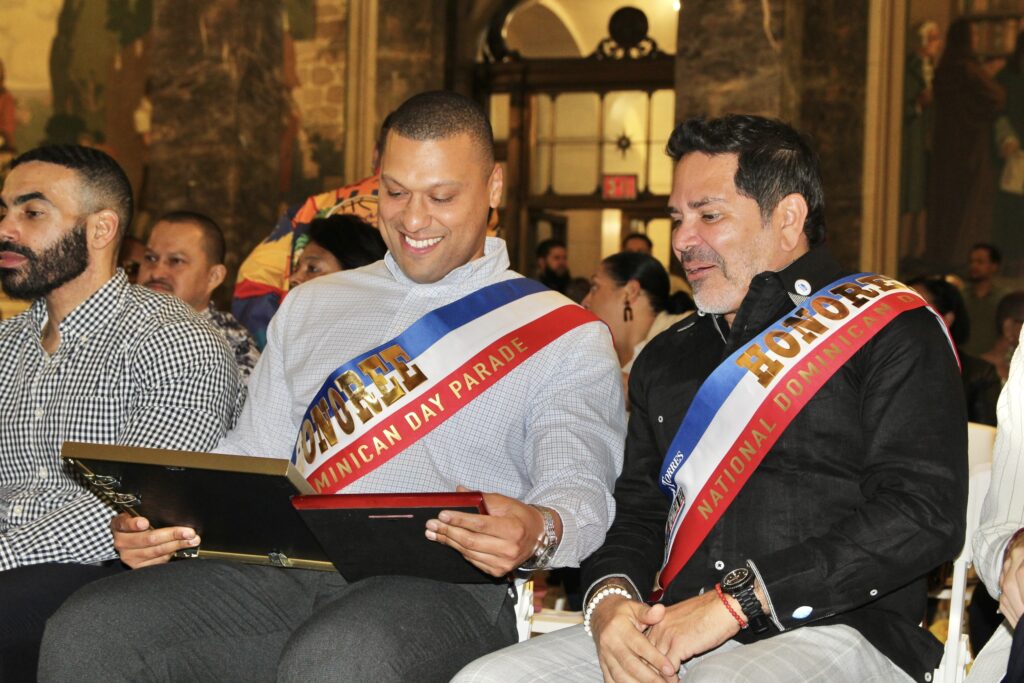
Photo by Síle Moloney
Together with MetroPlus Health, Montefiore Einstein, Blue York City, Anheuser Busch, and others, her office hosted a Bronx Dominican Heritage Celebration to kick-off the 42nd Anniversary of the National Dominican Day Parade in the Rotunda of Bronx Borough Hall, located at 851 Grand Concourse.
The honorees recognized at the event were the Bronx’s own Deputy Borough President Janet Peguero, who is currently expecting a baby; Bronx borough director of NYC Economic Development Corporation (EDC) for Upper Manhattan & The Bronx, Fernando Oritz; award-winning, Eyewitness News ABC7NY journalist, Pedro Rivera; and president of R.A.I.N., Anderson Torres, PhD.
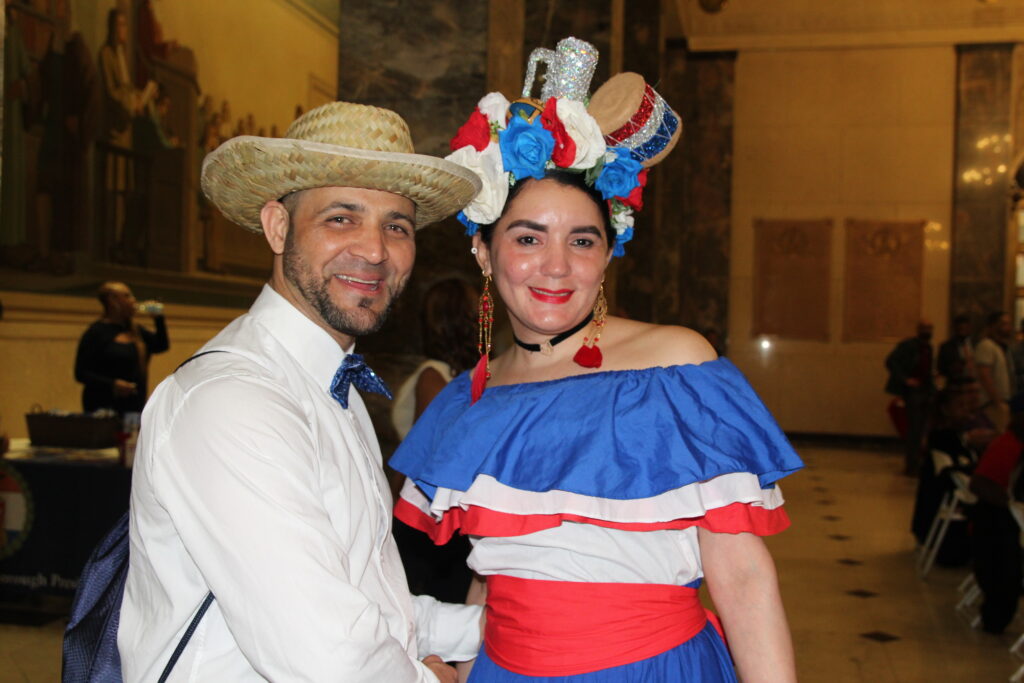
Photo by Síle Moloney
Congressman Adriano Espaillat (NY-13), who represents northern Manhattan and the west Bronx, and State Sen. Robert Jackson (S.D. 31) who represents much of the same area, were among the elected officials present. Espaillat also delivered some remarks to those gathered. The evening also included performances by El Grupo Folklorico, Ninoshka, and recording sensation, Chiqui Taveras.
Norwood News later spoke to Rosemary Perez-Bell, who attended the event with a family member, and asked why it was important for her to be there. She said, “Well, for me, it’s important to celebrate my parents and my family.” Perez-Bell said her parents emigrated from Santo Domingo, the capital, in the ‘50s and came to New York, set up a life here, and had a family.
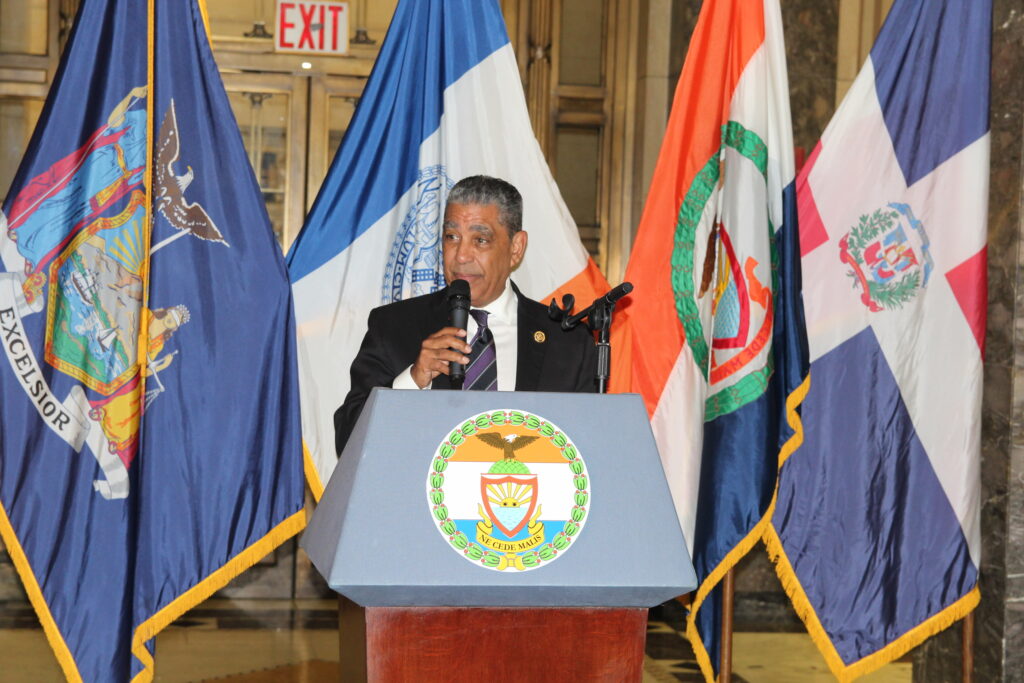
Photo by Síle Moloney
Reflecting on her childhood in the U.S., she said, “At home, it was learning about Dominican culture. They made sure that we could, from a very early age, read, write, and speak Spanish so we could communicate with our relatives.”
She continued, “Way back then, there wasn’t any internet; you had to write letters. So, they [parents] made sure of that, and they also made sure that we understood what the [Dominican] flag meant, who our founding fathers were over there, what that meant. My first trip back home was at the age of six and we were taken over to the Colonial City and taught [about] from when Columbus came to the island, all the way to present day, at that time.”
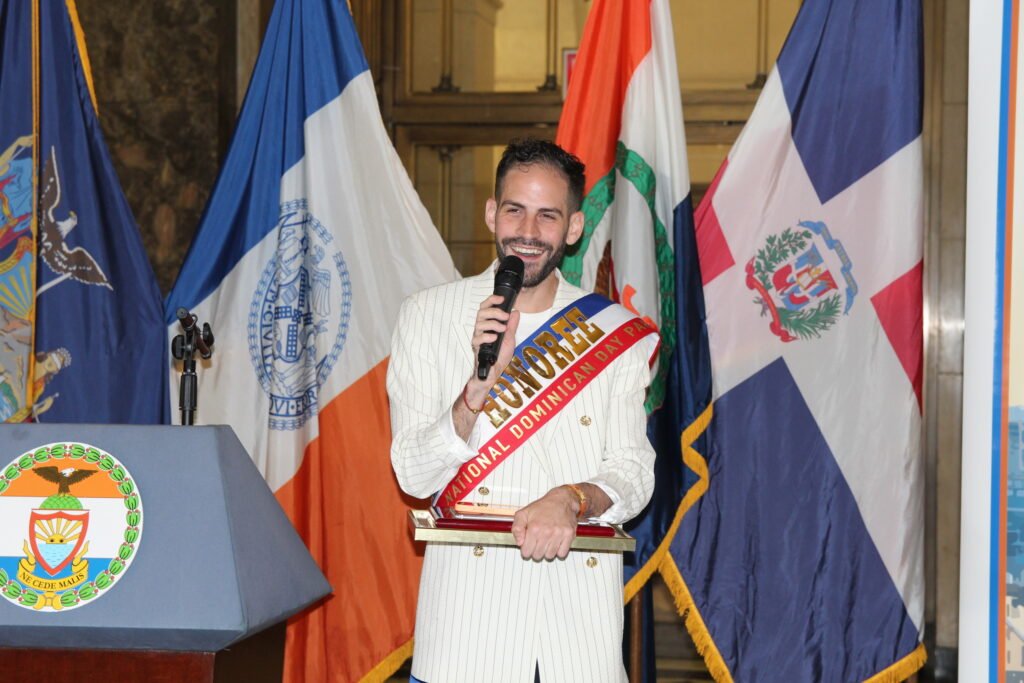
Photo by Síle Moloney
Perez-Bell said for her parents, it was a rite of passage to make sure that their daughters knew just as much about their Dominican culture as they were learning in school about their American culture. As a former Spanish colony, we asked what diplomatic relations with Spain were like now. Perez-Bell replied, “I mean, there’s a lot of Dominicans all over the world.” We asked if the Dominican Republic got a lot of Spanish tourists, and she said they did, along with tourists from all over the world, referencing the nation’s 180th anniversary of its independence, which she said is adding to the festivities.
“They’re expecting an even larger boom in tourism this year,” she said. “There’s a lot more to do in the country, and the president came to New York a couple of months ago and forged a couple of more relationships that are going to establish the country even better.” Referencing Disneyland’s monorail system, she went on to say that DR also now has “functioning monorail transportation.”
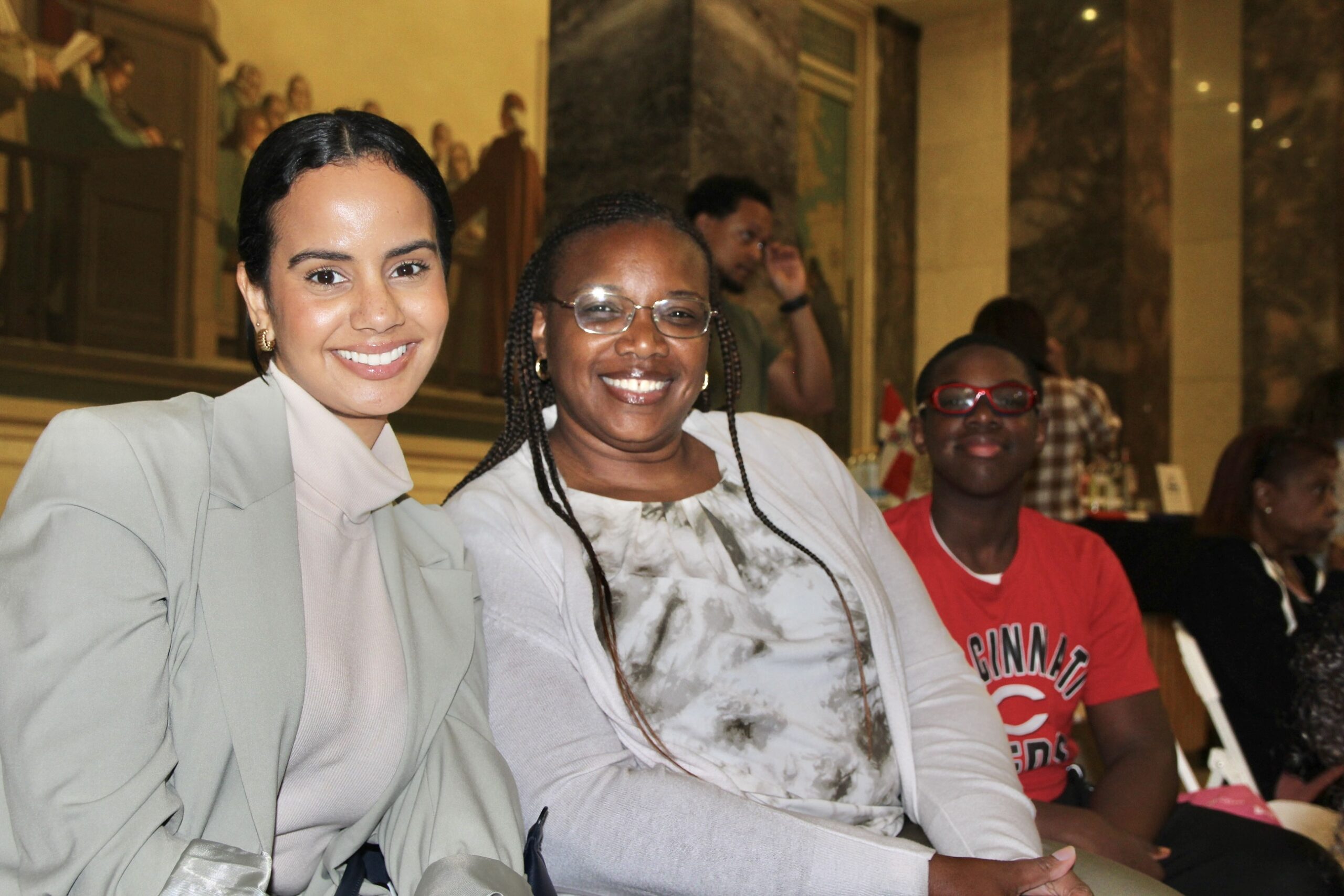
Photo by Síle Moloney
Perez-Bell said it also has an underground transit system and [a “Teleférico”] cable car system. “They have two of those, I believe, so there’s a lot of progress,” she said. Perez-Bell, who, we understand, may work in the area of healthcare, then said DR has also either just broke ground or cut the ribbon on a new hospital/hotel system, whereby Dominicans can travel to the capital for surgery from anywhere on the island and have a place to stay until they’ve recuperated and are ready to go back home.
She added that there is a similar system in Colombia. “Some of the Caribbean islands have a relationship with that, she said. “Now, in the Dominican Republic, we have the same thing.” In conclusion, she said, “I call the Dominican Republic home. It’s a beautiful culture to celebrate.”




